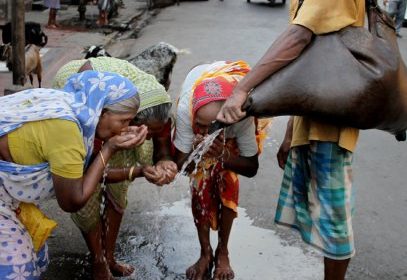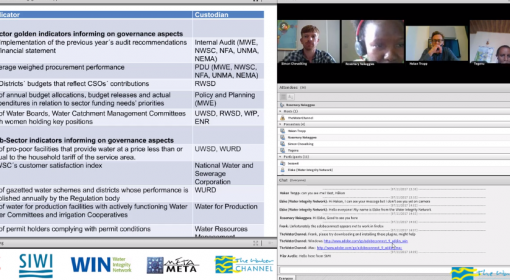| Date and time: | April 25, 2013, | |||
| Speaker: | Binayak Das, Water Integrity Network | |||
| Watch the Recording | ||||
| Download the Presentation | ||||
Description:
| Water will determine what world the future generations will live in. But this precious resource is underpinned by bad governance and lack of integrity. In many countries shortcomings are not due to shortage of water resources but due to governance failures, such as institutional fragmentation, lack of coordinated decision-making, corruption and low levels of transparency and accountability. The result is that governance systems are often not able to prevent or even provide incentives for unethical behaviour and poor professional practice. Corruption is moreover all pervasive and affects all aspects of the water sector – from water resources management to drinking water services, irrigation and hydropower, it occurs in all phases – from design through construction to operation and maintenance – and it is a major factor in the global water crisis. Integrity issues are often at the core of conflicts around water, which are arising at local, country and international levels. Improving water governance requires transparency, accountability and fighting corruption. It requires the right knowledge, access to strong partnerships and good tools. Improving water integrity means working with preventive measures to promote transparency, accountability and participation in water. Lessons have already been learnt from this preventive work. | |||
| About the speaker: | Binayak Das is the Programme Coordinator for Knowledge Management and Action Research at the Water Integrity network and also is focal point for South Asia. He has been associated with the water sector for the past 13 years – as a journalist, writer, researcher, coordinator and consultant. The Water Integrity Network (WIN) was formed in 2006 to respond to increasing concerns among water and anti-corruption stakeholders over corruption in the water sector. It combines global advocacy, regional networks and local action, to promote increased transparency and integrity, bringing together partners and members from the public and private sectors, civil society and academia, to drive change that will improve the lives of people who need it most. | |||
| Related Resources | ||||
 | ||||
Image Courtesy: Supriya Biswas/Water Integrity Network



